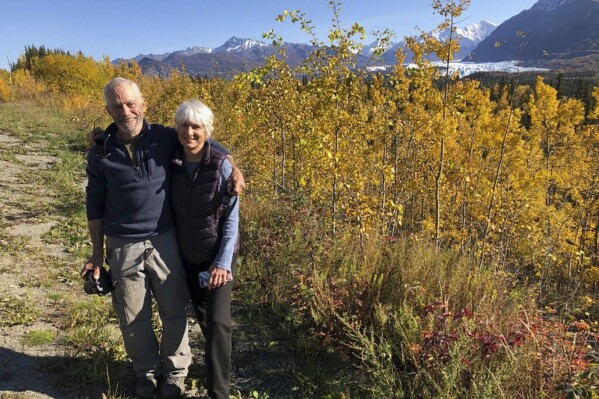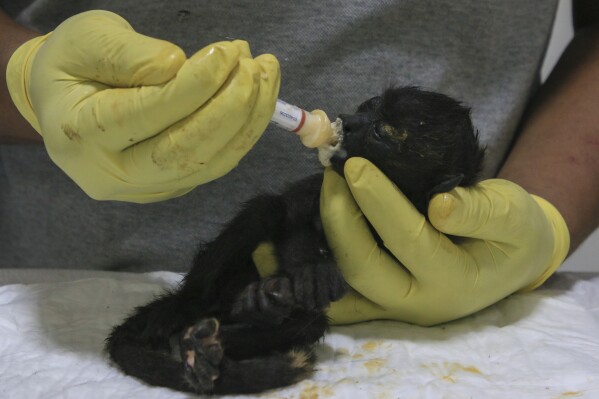Grizzly that mauled hiker in Grand Teton National Park won’t be pursued
A grizzly bear that attacked a hiker in Wyoming’s Grand Teton National Park won’t be captured or killed by wildlife authorities because it may have been trying to protect a cub, park officials said in a statement.
The 35-year-old Massachusetts man who was attacked on Signal Mountain spent Sunday night in the hospital after the bear bit him several times while he pretended to be dead.
There was no word when Signal Mountain or a road and trail to its 7,700-foot (2,300-meter) summit would reopen. Such closures are typical after the handful of grizzly attacks on public land in the Yellowstone region every year.
The decision not to pursue the bears, which officials determined behaved naturally after being surprised, also was consistent with attacks that don’t involve campsite raids, eating food left out by people, or similar behaviors that make bears more dangerous.
Rangers track and study many of the Yellowstone region’s 1,000 or so bears but weren’t familiar with the ones responsible for the attack Sunday afternoon, according to the statement.
The attack happened even though the victim was carrying bear-repellant spray and made noise to alert bears in the forest, the statement said.



Speaking to rangers afterward, the man said he came across a small bear that ran away from him. As he reached for his bear repellant, he saw a larger bear charging at him in his periphery vision.
He had no time to use his bear spray before falling to the ground with fingers laced behind his neck and one finger holding the spray canister.
The bear bit him several times before biting into the can of pepper spray, which burst and drove the bears away.
The man got to an area with cell phone coverage and called for help. A helicopter, then an ambulance evacuated him to a nearby hospital.
Investigators suspect from the man’s description that the smaller bear he saw was an older cub belonging to the female grizzly that attacked. Mother bears aggressively defend their offspring and remain with them for two to three years after birth.
Park officials didn’t release the victim’s name. He was expected to make a full recovery.
Disclaimer: The copyright of this article belongs to the original author. Reposting this article is solely for the purpose of information dissemination and does not constitute any investment advice. If there is any infringement, please contact us immediately. We will make corrections or deletions as necessary. Thank you.



